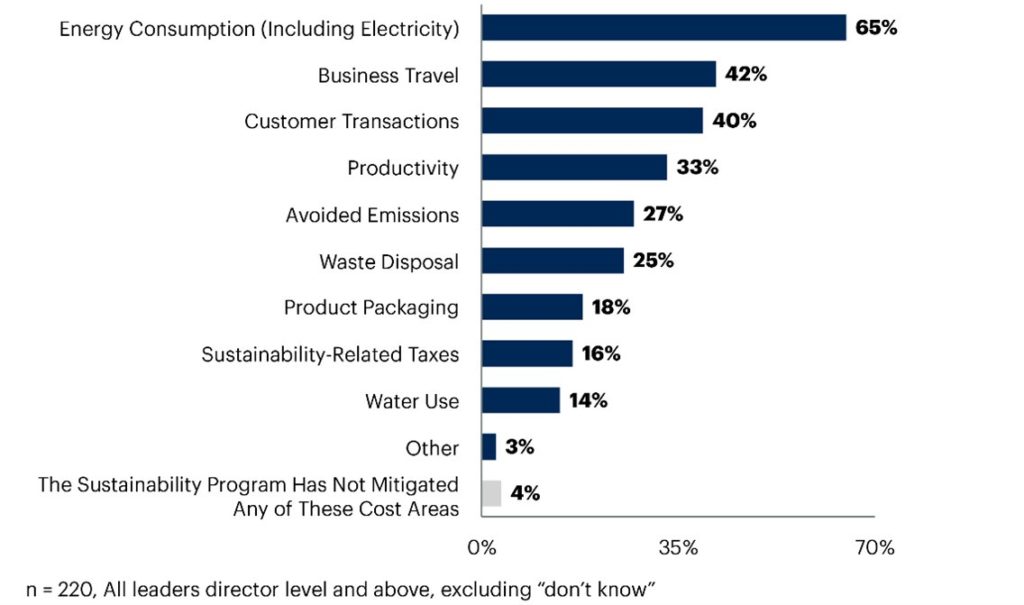A new Gartner survey revealed that 87% of business leaders expect to increase their organisation’s investment in sustainability over the next two years. Customers are the primary stakeholder group creating pressure for organisations to invest or act on sustainability issues, selected by 80% of executives, followed by investors (60%) and regulators (55%).

“Sustainability enables businesses to cope with disruption. Economic uncertainty, geopolitical conflict and escalating materials and energy costs are forcing businesses to re-examine all forms of expenditure,” said Kristin Moyer, distinguished VP analyst with Gartner.
“This focus on essentialism, in combination with increasing stakeholder desire to see progress on environmental, social and governance (ESG) goals, creates new opportunities for enterprises to grow while mitigating cost and risk.”
Kristin Moyer
The survey was conducted in June and July 2022 among 221 respondents in North America, Europe and Asia/Pacific. Respondents were executives in director roles or above within organisations with enterprise-wide annual revenue of at least US$250 million for the fiscal year 2021, which are currently engaged in sustainability-related activities.
Sustainability protects organisations from disruption
The survey found that 86% of business leaders see sustainability as an investment which protects their organisation from disruption.
Additionally, 83% said sustainability program activities directly created both short- and long-term value for their organisation, and 80% indicated that sustainability helped their organisation optimise and reduce costs.
Specifically, the top areas where survey respondents said sustainability programs are mitigating cost increases are energy consumption, business travel and customer transactions (see Figure 1).

Source: Gartner (November 2022)
“Executive leaders are achieving both operational and supply chain savings through their sustainability programs,” said Moyer. “This kind of ‘two for one,’ where sustainability investment supports a business goal like cost optimisation, significantly enhances the program’s impact by creating a virtuous cycle.”
Sustainability drives growth and innovation
Sustainability can also enable new value creation and business growth opportunities. Fifty-seven per cent of business leaders said the enterprise sustainability program has a strong connection to the results on the income statement, and 42% of respondents are leveraging their sustainability activities to drive innovation, differentiation and enterprise growth through sustainable products.
“Investing in sustainability can support product differentiation but be wary of greenwashing risks – there are no shortcuts to sustainable growth,” said Moyer. “Focus on product attributes that are important to customers and how these priorities shape buying decisions. When viewed through a strategic lens, sustainability can provide a ray of sunshine for businesses during difficult market conditions.”




